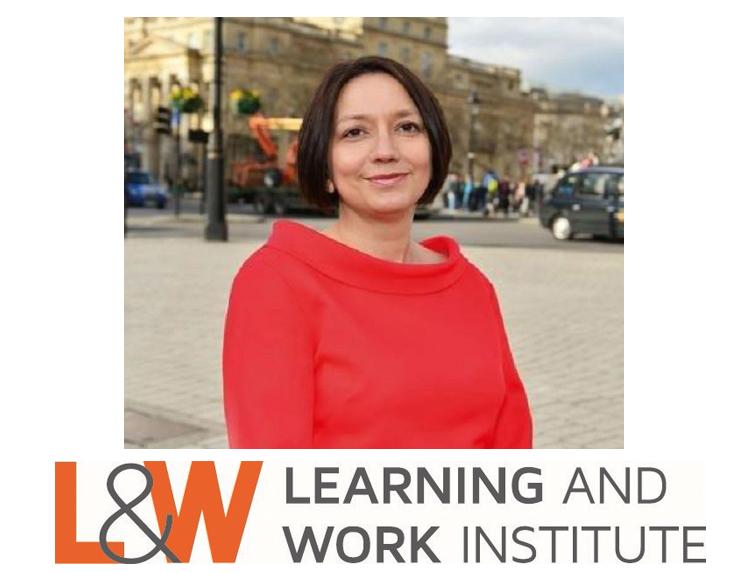Lifetime Skills Guarantee – A welcome step, but more needs to be done to reverse decade of decline in training

As the Prime Minister announces a major extension of post-18 education and training, a leading think tank has called for further action to reverse a ‘decade of decline’ in lifelong learning.
The Prime Minister will today unveil a ‘lifetime skills guarantee’ to give adults the chance to take free college courses that are valued by employers, and new entitlement to flexible loans to help adults to retrain.
The pledge comes ahead of the end of the Coronavirus Job Retention Scheme at the end of October, which is expected to lead to a second wave of redundancies, and a large increase in unemployment.
Learning and Work Institute (L&W) has welcomed the announcement, but called for additional investment, and a comprehensive plan to reverse a decade of decline in lifelong learning.
L&W’s adult participation survey shows that just one in three (33%) adults have taken part in learning in the last three years, the lowest figure ever recorded. The number of adults taking part in learning and training has fallen by nearly 4 million since 2010.
Dr Fiona Aldridge, Director of Policy and Research, Learning and Work Institute, said:
“The new lifetime skills guarantee will help more adults improve their skills, and hopefully kickstart a new era of investment after a decade of decline during which the number of adults gaining A level equivalent qualifications has almost halved.
“But while this new entitlement will help, it can only be the first piece of the jigsaw and a down payment on the £1.9 billion extra investment needed. We need an ambitious lifelong learning strategy, support for people to retrain and change careers, and investment to create a pipeline of learning from basic skills to higher education.”
Revolutionising Access to Adult Upskilling and Reskilling
Earlier in the year, Gavin Williamson described the forthcoming white paper as revolutionary – and a revolution is certainly what is needed in adult upskilling and reskilling. Even before the pandemic, there was a growing recognition of the need for more support for adults to upskill and retrain throughout their working lives, and to develop resilience to ongoing economic and technological change.
Mass Unemployment
This has only been exacerbated by the current recession, in which many more adults will need to upskill and reskill for new careers. Unemployment has already reached
3.4 million and looks to rise further as the furlough scheme unwinds. Furthermore, the sectoral nature of this recession means that many workers will struggle to find similar roles, and instead will need to consider retraining to change careers.
Participation and Funding: A Decade of Decline
Yet, while the need for adults to upskill and reskill is evident, increasingly the means to do so are not. Instead, we have seen a decade of decline in both investment and participation in adult skills. Government funding for adult learning and training (excluding apprenticeships) fell by almost half between 2009/10 and 2018/19. Employer investment has fallen too, with UK employers now investing just half the EU average in continuing vocational training.
It should come as no surprise therefore that Learning and Work Institute’s latest survey of adult participation in learning shows that just one in three UK adults have taken part in any form of learning or training in the past 3 years – the lowest figure in the survey’s 20+ year history. In fact, since 2010, participation in adult learning has fallen by a staggering 10 percentage points – with an estimated 3.8 million fewer adult learners at the close of the decade than at its start.
A revolution is much needed and long overdue. So, what do we want to see from the white paper?
A Universal Support Offer
In our recent report, When Furlough has to Stop, we called for the urgent introduction of a universal support offer to help adults develop their skills throughout their working lives. As well as committing to investment in high quality online support and one-to- one careers advice for adults, the white paper should introduce a lifelong learning entitlement up to Level 3, including for subsequent Level 3 study where it is in an economic priority area or where adults have significant National Insurance contribution records.
We also highlighted the need for a more flexible learning offer – with both short and longer courses, offering face-to-face, online and blended provision – to fit with adults’ work and wider lives. And of course, a universal support offer is only helpful if adults are aware of it and if they recognise the relevance and value of the offer in helping them achieve their ambitions and goals. A large-scale awareness campaign will be needed.
Support for Career Changers
For those adults looking to reskill for new careers, the white paper needs to deliver more substantial support. We have proposed that this should include enhanced careers advice and a £5,000 learning account to help finance the costs of retraining.
Action is also needed to ensure that the right provision is in place, at all levels – from basic English, maths and digital skills to sector specific provision up to Level 5 and beyond. This could involve a series of sector-based Ambition programmes, bringing together businesses and skills providers to develop and deliver training tailored to specific career pathways and jobs. As well as being involved in design and delivery, employers would be asked to guarantee interviews for career changers who complete these programmes.
Ensuring affordability
Finally, as our adult participation in learning survey shows, costs can be a major barrier to retraining. While a learning account will help with fee costs, adult learners often have wider financial commitments that make it impossible for them to earn less as they seek to step across to a new occupation or sector.
The white paper should include a commitment to providing these adult learners with some form of maintenance support either through a means-tested maintenance grant (a Career Changer Grant) or as a Career Change Premium in Universal Credit. Eligibility could be linked to an individual’s National Insurance contributions history.
An Opportunity not to be Missed
This is an opportunity not to be missed. An opportunity to introduce comprehensive and ambitious support for adults to upskill and reskill. An opportunity to invest both in economic growth and social justice.
Three Reforms for the White Paper
- First, the white paper should commit to introducing a universal support offer for all adults, providing online support and one-to one-careers advice, as well as a lifelong learning entitlement to free education to achieve up to a first Level 3 through modules or whole qualifications.
- Second, the white paper should include a package of assistance for career changers based on enhanced careers advice, sector-based programmes bringing business and skills providers together to develop training tailored to specific career pathways and jobs, a £5,000 learning account to pay for up-skilling or re-skilling.
- And third, the white paper should either introduce a part-time DfE maintenance grant or a DWP Career Changer Premium within Universal Credit, to sustain upskilling and reskilling to mitigate wage drops as people move sectors.
Fiona Aldridge, Learning and Work Institute
‘Revolutionary Forces’In the immediate aftermath of the Covid-19 pandemic, it is easy to forget that there were wider revolutionary forces at work on the UK’s economy before the virus outbreak. Issues such as Brexit, the rise of automation in the workplace, longer working lives, and poor UK productivity have brought into even sharper focus, education and skills. NCFE and Campaign for Learning (CfL), published the first in the series of ‘Revolutionary Forces’ discussion papers on 6 July 2020. In this Revolutionary Forces series different perspectives and proposed reforms for the post-16 education and training system have been brought together in one pamphlet, from expert stakeholders, think-tanks and educational professionals. Building on the recommendations outlined in the first paper for flexible reforms that support economic and social renewal, this new paper, “Reforms for a Revolutionary Post-16 White Paper“, takes a deeper look at which areas need to be addressed. The authors are:
|











Responses